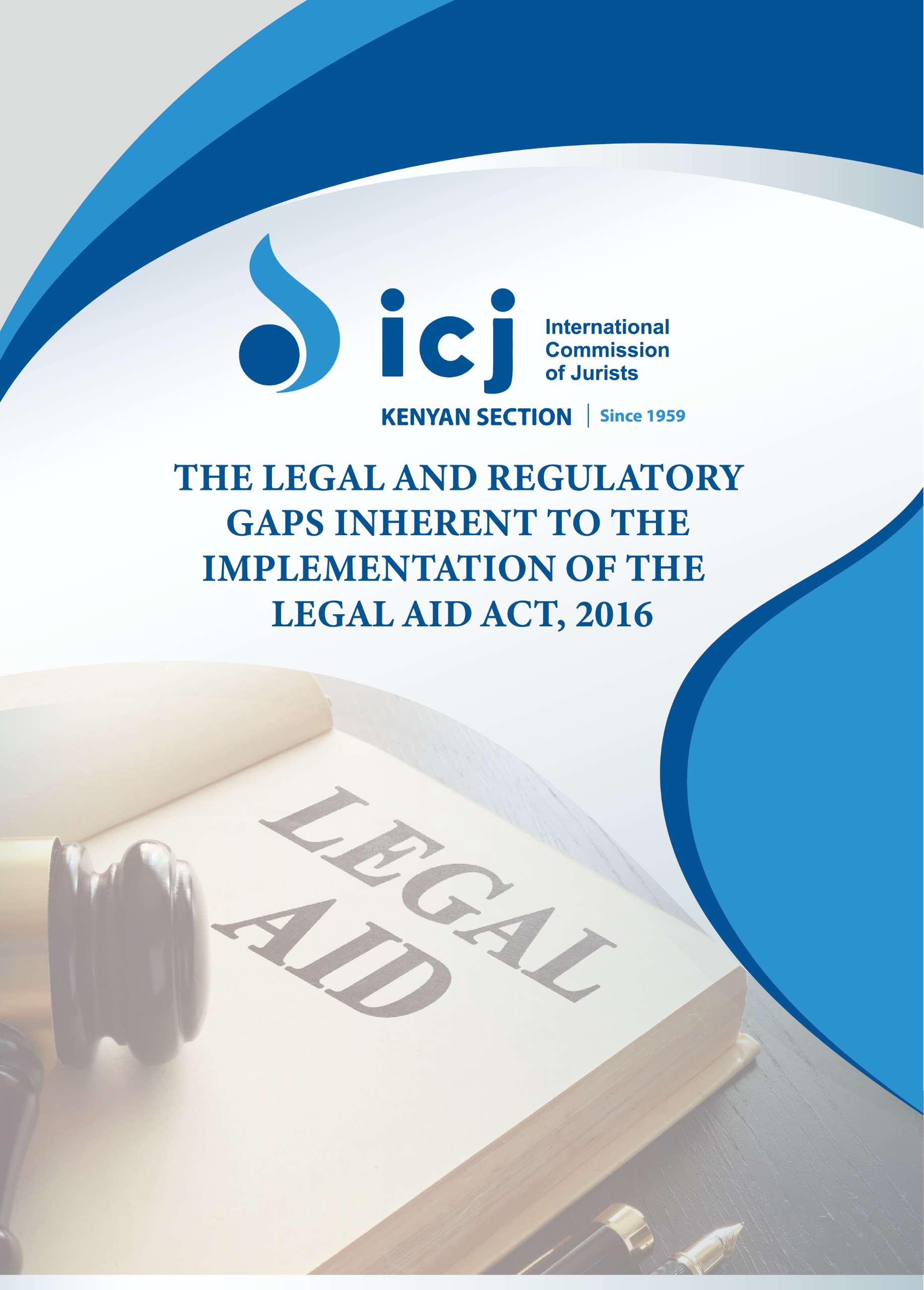
ICJ-Kenya, through a project titled: Deepening Paralegal Movement in Kenya through
Coalition Building and Strengthening, commissioned a baseline survey on the Legal and
regulatory gaps inherent to the implementation of the Legal Aid Act, 2016.
The project seeks to enhance the duty-bearers’ understanding of the legal and policy gaps inherent to the
implementation of the Act and improve the operational environment for a sustainable paralegal
movement in Kenya. Whereas the Act was enacted in Kenya in order to enhance access to justice
for all, the survey focused on, among other things, legal, regulatory and administrative gaps that
potentially impede its effective implementation to secure legal aid to all.
This survey was conducted in Nairobi, Western and Coastal regions of Kenya, with Mombasa,
Kisumu and Nairobi being the convergence point for data collection. The survey mostly deployed
qualitative techniques and purposive sampling of the informants so as to provide more accurate
information for analysis. The survey undertook literature reviews from relevant sources.
Further, four (4) Key Informants Interviews (KIIs) were conducted by the survey team, with key
stakeholders, including mandated institutions as well as other stakeholders that operate within
the legal empowerment space. Additionally, seven (7) Focus Group Discussions (FGDs) were
conducted with community paralegals who practice in the above sampled counties.
These were collected vide a specially designed survey questionnaires, and analysed in order to support the
survey observations and findings. State of legal empowerment infrastructure, demand for legal
aid services, geographical spread, gender and special need groups considerations were factored
into the sample design to ensure equal participation and representation of different categories
of people in the survey.
The evidence gathered demonstrates that there exist gaps in legal frameworks limiting effective
legal aid access and delivery, extending to the institutional inefficiencies of NLAS which faces
funding constraints. The survey recommended among others on the need to lobby for the
operationalization of the Legal Aid Fund, which is meant to fund legal aid service delivery
through NLAS.




